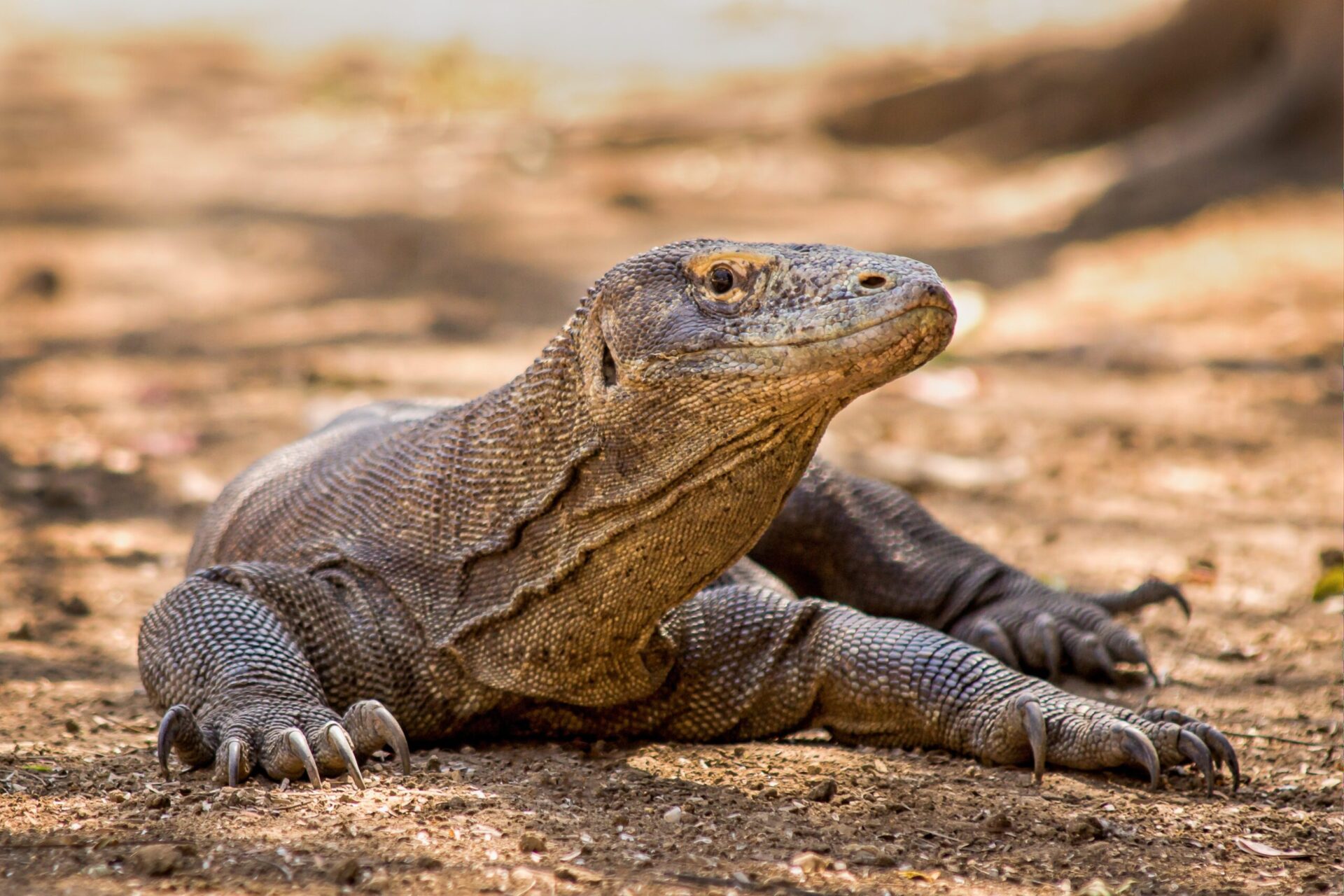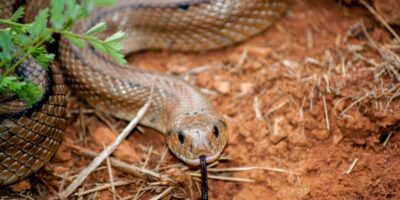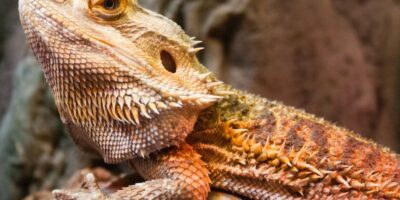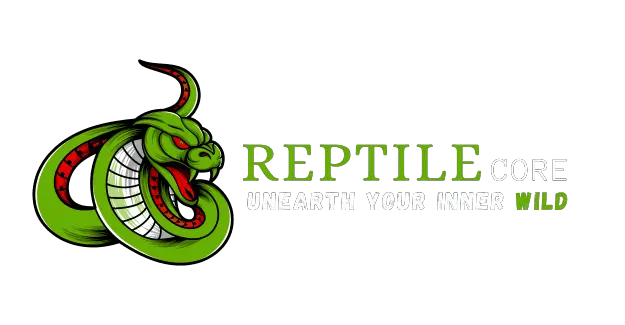Ackie Monitor is a lizard species that has captivated the hearts of reptile enthusiasts with its unique charm and captivating personality. As Ackie Monitors embark on their fascinating growth journey, the role of feeding and nutrition becomes paramount.
This journey isn’t merely a matter of size; it’s a testament to the intricacies of nature’s design and our role in nurturing it. In this blog post, we delve into the world of Ackie Monitors, tracing their path from juvenile to full-size.
Along the way, we’ll explore the profound importance of feeding and nutrition in their development. Ackie Monitors are not just pets; they’re curious, intelligent beings deserving of the best care we can provide. Our purpose here is to guide you through the nutritional essentials, growth stages, and potential pitfalls on the path to raising a thriving Ackie Monitor. So, let’s embark on this journey together and uncover the keys to ensuring your Ackie Monitor reaches its full potential.
Balanced diet
Understanding the dietary requirements of Ackie monitors is fundamental to their health and well-being.
- In their natural habitat, these reptiles primarily feed on insects, small vertebrates, and occasional plant matter. They are skilled hunters and foragers, making their diet highly protein-based with occasional vegetation.
- In captivity, it’s crucial to replicate this balanced diet, ensuring that the specific dietary requirements of captive Ackie Monitors are met. A well-rounded and nutritionally rich menu should include various insects such as crickets, dubia roaches, and mealworms.
- Additionally, the inclusion of leafy greens and fruits on occasion can provide essential vitamins and minerals. Achieving a balanced diet is key, as it promotes not only growth but also the overall health and longevity of these captivating reptiles.
Nutritional needs of juvenile Ackies
The early growth stages of juvenile Ackie Monitors are a critical period in their development, and understanding their nutritional needs is essential. Juvenile Ackies have voracious appetites and high energy levels, making their dietary requirements unique. They require more frequent feeding compared to their adult counterparts, often requiring daily or every other day meals to support their rapid growth. Portion sizes should be appropriate, typically consisting of insects equal in quantity to the size of their heads.
Protein and calcium are of paramount importance in the diet of juvenile Ackie Monitors. These nutrients are essential for bone development, muscle growth, and overall health. A diet rich in high-quality protein sources, such as small insects, provides the necessary building blocks for their young bodies. Additionally, ensuring proper calcium levels is crucial for preventing issues like metabolic bone disease. Dusting their food with a calcium supplement containing vitamin D3 can help meet these requirements. Understanding and meeting the nutritional needs of juvenile ackies during their early growth stages is vital to setting the stage for healthy development and a thriving adult lizard.
Transition to Sub-Adult and Adult Ackie Monitors
As Ackie Monitors progress from being juvenile to sub-adult and eventually adult individuals, their dietary requirements undergo significant changes to accommodate their growth and changing metabolism. This transition marks a pivotal phase in their development. To cater to these evolving needs, it’s essential to adjust both the feeding frequency and the variety of foods they receive.
Sub-adult and adult Ackie Monitors generally do not require the same frequency of feeding as their juvenile counterparts. As they are no longer experiencing the rapid growth seen in their earlier stages, reducing the number of weekly meals is advisable to avoid overfeeding and potential weight issues.
In addition to altering feeding frequency, it’s important to diversify the types of food offered. While insects continue to be a dietary staple, the types of insects and the introduction of small vertebrates like mice can provide essential nutrients. A well-rounded diet includes variety, which is essential for a balanced intake of proteins, fats, and other nutrients.
Feeding Strategies and Techniques
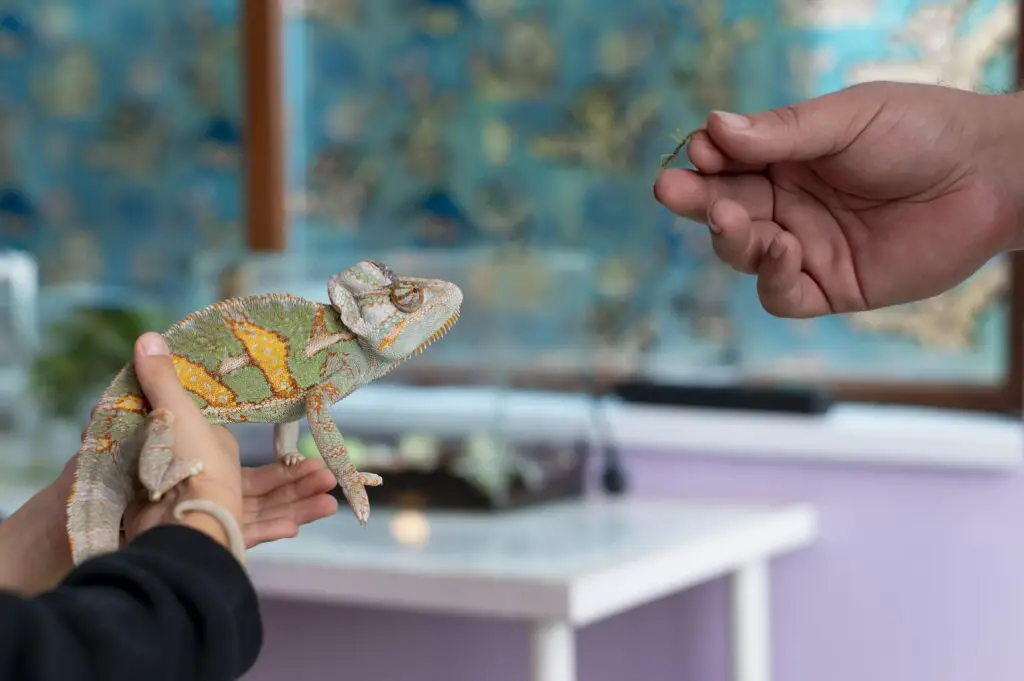
Feeding strategies and techniques for Ackie Monitors go beyond simply providing a variety of insects. They involve enhancing the nutritional value of their diet.
- One effective method is gut-loading, which entails feeding the insects nutritious foods before offering them to your lizards. This practice ensures that the insects are rich in essential vitamins and minerals when consumed, providing a more nutritionally balanced meal for Ackie Monitors.
- Calcium and vitamin supplementation are another vital component of their diet. Dusting the insects with a calcium powder containing vitamin D3 helps prevent calcium deficiencies and metabolic bone disease.
- Additionally, Ackie monitors rely on UVB lighting for calcium metabolism. This type of light helps them synthesize vitamin D3, which is crucial for the absorption of calcium. Ensuring that your lizards have access to adequate UVB lighting within their enclosures is essential for their overall health and well-being.
Signs of Nutritional Deficiencies
Recognizing signs of nutritional issues in Ackie Monitors is a vital aspect of responsible pet ownership. Watch for cues such as weight loss, lethargy, changes in skin color, or irregular shedding, as these could indicate malnutrition.
Specific symptoms of vitamin or mineral deficiencies may manifest as weakness, tremors, or even deformities in severe cases. If you notice any of these signs, it’s crucial to seek veterinary help promptly. A veterinarian experienced in reptile care can diagnose and address nutritional issues to ensure your Ackie Monitors remain healthy and vibrant.
Mealtime Enrichment and Mental Stimulation
Mealtime enrichment and mental stimulation are key to keeping Ackie Monitors active and engaged. Encouraging their natural hunting and foraging behaviors can be achieved by hiding food items in their enclosure, prompting them to search and work for their meals.
Food puzzles and interactive feeders are excellent tools to challenge their problem-solving skills and stimulate their minds. These activities not only satisfy their instinctual behaviors but also promote both physical and mental health, ensuring that your Ackie Monitors remain mentally sharp and content in captivity.
Conclusion
The journey to Ackie Monitor full size is intricately linked to their feeding and nutrition. A proper diet plays a pivotal role in their growth, development, and overall well-being. This blog post has underlined the importance of understanding their dietary requirements and the significance of adjusting their diet as they grow.
Responsible pet ownership is key to providing a well-balanced diet that caters to their evolving needs. As we wrap up, we emphasize the vital role each of us plays in ensuring the health and happiness of our Ackie Monitors. Further research and continuous learning are essential for staying informed and providing the best care for these captivating reptiles.
So, as you continue on your journey with your Ackie Monitors, remember that a well-nourished lizard is a thriving lizard, and a thriving lizard is the epitome of responsible and rewarding pet ownership.
